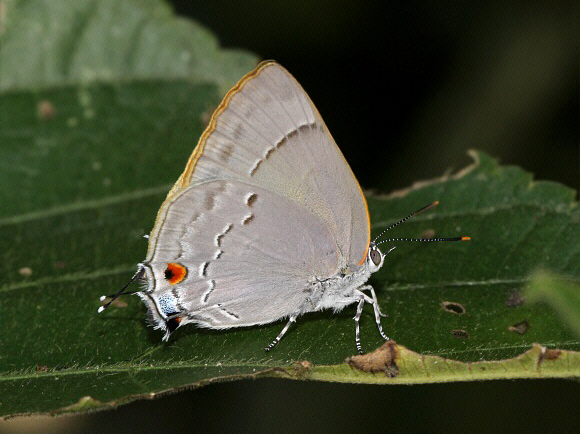
Introduction
Almost all neotropical Theclinae species are placed in the Eumaeini. The tribe is not particularly well represented in collections, so until fairly recently a high percentage remained unstudied, and were inappropriately filed away in the ‘convenience’ genus Thecla. Many taxonomists have attempted to rationalise the systematics of the Eumaeini, the most recent being Robbins who published a revision in 2004, reclassifying the taxa into 83 genera. Currently there are 1058 known species. Taking into account their small size, secretive behaviour, and the great similarities between many species, it is estimated that about another 200 species probably remain to be discovered.
There are 17 known Ostrinotes species. Many have only recently been discovered, and only 9 have so far been given scientific names. The most widespread are empusa and halciones, both of which are distributed across most of the neotropical region.
The males of all Ostrinotes species are chocolate brown on the upperside, with a brilliant royal blue sheen across the hindwings and lower half of the forewings. In females the blue areas are a paler sky blue. The undersides of all species are greyish or pale brown, marked with a broken hair streak line similar in contour to that of halciones.
Ostrinotes halciones is found in Mexico, Nicaragua, Belize, Costa Rica, Panama, Colombia, Ecuador, Venezuela, Surinam, Guyana, Peru, Brazil and Bolivia.
Habitats
This species is found in primary rainforest at altitudes between about 100-1000m.
Lifecycle
To be completed.
Adult behaviour
The adults are more easily observed than those of many other hairstreaks due to their larger size. They are usually encountered as singletons, settled on the foliage of bushes or saplings in forest-edge habitats.
